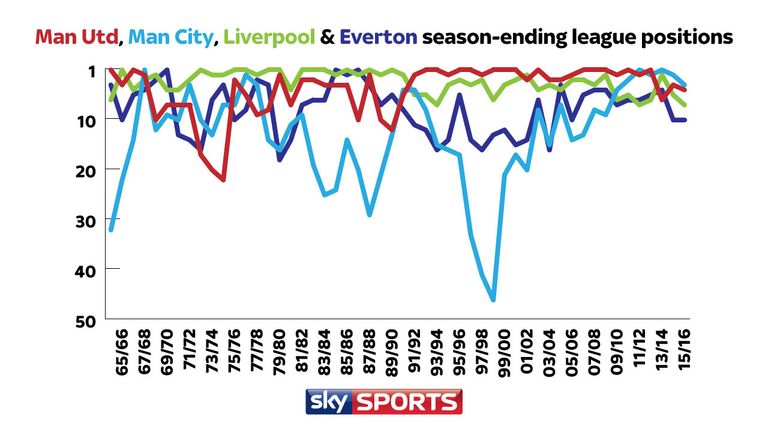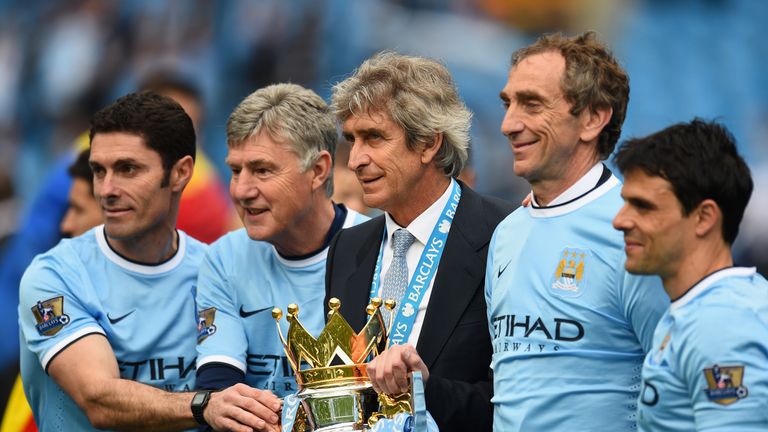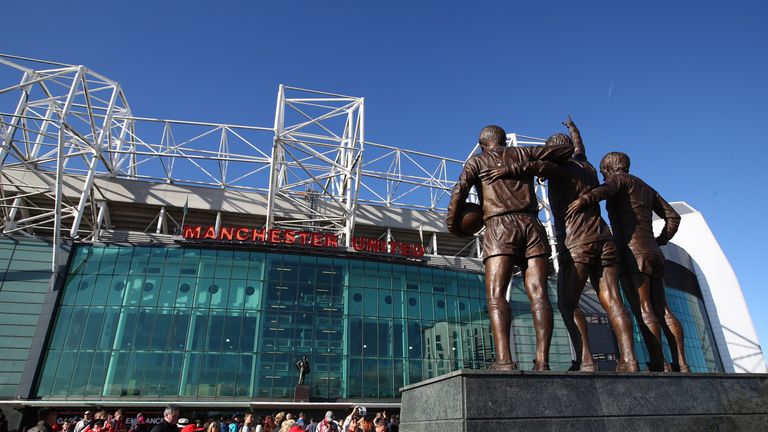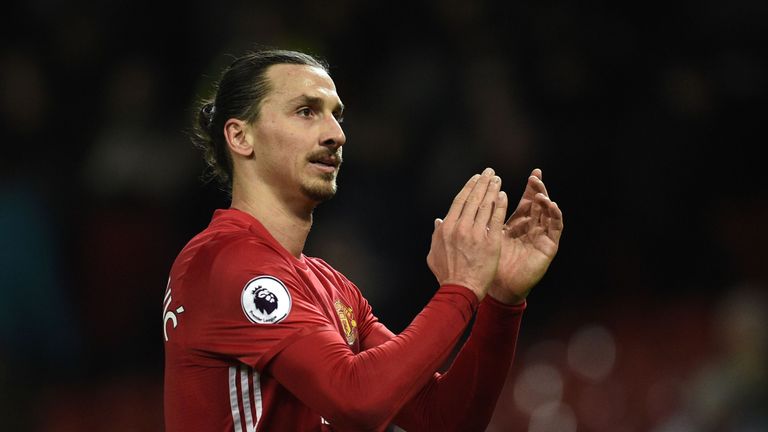Are Liverpool and Everton bigger than Man Utd and Man City?
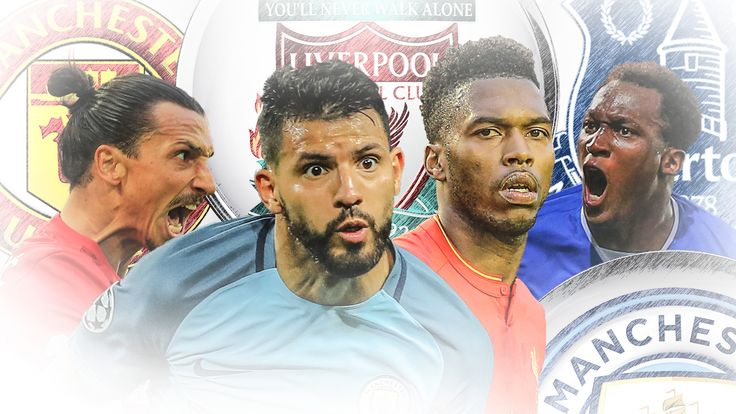
Thursday 16 April 2020 16:11, UK
Ahead of Merseyside v Manchester live on Sky Sports 1 from 12.30pm on Sunday, we reveal which football hotbed has enjoyed more success...
Everton kick things off against Manchester City at Goodison Park this weekend, followed by Manchester United v Liverpool at Old Trafford - but are the Merseyside clubs bigger than the Manchester giants?
We have looked at the clubs' league positions over the last 50 years, their total all-time honours, average attendances and current global support to see which pair reign supreme.
LEAGUE POSITION
Manchester United and Liverpool are the most successful clubs in England, having won 20 and 18 league titles, respectively. But Liverpool have never won a Premier League crown and nor have neighbours Everton, who have not won any of their nine league titles since 1986/87.
In contrast, City have contested United's dominance in Manchester over recent years, winning two of their four titles in the last five years. However, City spent six seasons in England's second tier between 1964/65 and 1992/93.
In addition, the Sky Blues were relegated from the Premier League in 1995/96 and started life in League One in 1998/99. Back-to-back promotions saw City return to the Premier League in 2000/01 before dropping back to the second tier, only to return to England's top flight in 2002/03.
The Sky Sports Ultimate League, which ranks clubs annually by their average 50-year league position, suggests Liverpool are England's most successful club in the league with an average position of 3.46 - ahead of Manchester United who have averaged in fifth place, despite winning 13 Premier League titles since 1992/93.
So, in terms of league positions, it's advantage Merseyside again - with Everton averaging an 8.98 finish and Manchester City averaging the lowest of all four clubs with 13.62.
Combined, Team Merseyside have an average league position of 6.22 compared to Team Manchester's 9.31.
TEAM MERSEYSIDE 1-0 TEAM MANCHESTER
HONOURS
In terms of honours won, Manchester United and Liverpool are runaway winners again with 64 and 60, respectively. Although United have won more league titles, Liverpool have won five European Cups compared to their rival's three.
Everton beat City for all-time honours with 24 in total, including nine league titles and five FA Cups - compared to City's total of 18, which includes four league titles, five FA Cups and four League Cups. Combined, Team Merseyside can once again claim bragging rights with a slender honours win of 84-82.
TEAM MERSEYSIDE 2-0 TEAM MANCHESTER
ATTENDANCE
We have looked at top-flight attendances over the last 50 years and it's good news for Team Manchester, according to worldfootball.net data.
United have attracted an average crowd of 55,350 since 1967/68 with neighbours City on 36,127. In Merseyside, Liverpool have averaged 41,403 over the last half century with Everton packing 33,011 into Goodison Park.
That means Team Manchester win the attendance battle to reduce the deficit - with global support being the final contest to decide whether the two areas can be divided...
TEAM MERSEYSIDE 2-1 TEAM MANCHESTER
GLOBAL SUPPORT
With 128.1m followers on Facebook, Instagram and Twitter, Team Manchester have snatched a last-gasp equaliser in our showdown.
United's official social media accounts have 97.4m followers, while City have 30.7m, according to sports index company Brandtix.
Team Merseyside pale in comparison, with Liverpool having a 39.9m-strong following but Everton's modest 4.2m means the Mersey clubs total a combined 44.1m.
Zlatan Ibrahimovic is the most followed player from all four clubs with 52.5m subscribers, followed by Wayne Rooney (48.7m) and City's Sergio Aguero (28.2m).
On Merseyside, Liverpool's Daniel Sturridge tops the two teams with 8m, followed by team-mates Philippe Coutinho (5.1m) and Mamadou Sakho (4.5m).
FINAL SCORE
TEAM MERSEYSIDE 2-2 TEAM MANCHESTER
So, it's all square between Team Merseyside and Team Manchester in terms of league positions, honours, attendance and global support - but which club will emerge victorious on Sunday?
Do you think Merseyside or Manchester have the bigger clubs? Have your say and leave a comment below or tweet us at @SkyFootball
Watch Everton v Manchester City from 12.30 and Manchester United v Liverpool from 3.30 on Sunday live on Sky Sports 1
